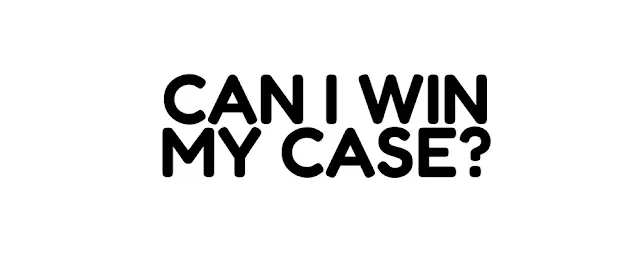THE INTRICATE DANCE OF LEGAL PREDICTABILITY: WHY THE ODDS OF WINNING A CASE ARE MORE COMPLEX THAN YOU THINK
In law offices across Malaysia, from the bustling streets of Kuala Lumpur to the historic corridors of Georgetown, Penang, lawyers are often met with one question from potential clients: "What are my chances of winning?" While this query seems reasonable from the perspective of a layperson, it poses a significant challenge for legal professionals due to the complex and unpredictable nature of the legal system.
1. When faced with this question, many lawyers often pause, reflecting on the complexities and uncertainties that permeate the practice of law. They understand that the legal process is not a pre-programmed system, nor is it a predictable mathematical formula. It is a dynamic, often unpredictable process shaped by a myriad of variables.
2. The first hurdle is the inherent difficulty of evaluating a case based on one-sided evidence. When clients present their side of the story, it is naturally biased in their favour. However, this is just a slice of the full picture. The opposing party may have evidence or arguments that can weaken or even dismantle the client's case.
3. Imagine a personal injury lawsuit where a client insists that a shop owner's negligence led to their injury. While the client's narrative might paint a clear picture of culpability, the owner might introduce CCTV footage revealing the client blatantly ignoring posted caution signs. This unexpected evidence could dramatically shift the odds, demonstrating how single-sided evidence can be misleading.
4. Another challenge lies in the uncertainty surrounding the evidence or documentation from the opponent. Especially in cases involving business or financial disputes, the crux of the matter is often hidden within vast amounts of paperwork or complex digital records. These documents may contain critical information that could significantly alter the strength of the case. Therefore, until the opposing party discloses these documents, predicting the outcome is like trying to complete a jigsaw puzzle with half the pieces missing.
5. The unpredictability extends to the courtroom itself, where the perception and interpretation of the judge can introduce further variability. As humans, judges have their own set of beliefs, biases, and ways of interpreting the law. The same case presented to two different judges might result in contrasting outcomes, owing to these individual variances.
6. Consider a landlord-tenant dispute over the return of a security deposit. One judge might rule in the landlord's favour, emphasising the cost of property damage. In contrast, another judge might prioritise the hardship faced by the tenant, ruling differently. These divergent outcomes underscore the inherent subjectivity in the legal process, making it challenging to predict the odds of success.
7. Adding to this complexity is the uncomfortable reality that clients sometimes omit or distort parts of their story. This can stem from embarrassment, fear, or a misguided attempt to strengthen their case. Unfortunately, such omissions or distortions can have unforeseen repercussions, often undermining the client's credibility and jeopardising their case.
8. In a divorce proceeding, for example, a husband might conceal his extramarital affair, deeming it irrelevant to the division of marital assets. However, should this affair come to light during proceedings, it could cast doubt on his credibility, influencing the judge's decision, even if Malaysian law does not typically consider infidelity in asset division.
9. Even beyond these factors, there are other variables at play. The expertise and strategy of the lawyers involved, the pace of the court system, evolving societal norms, and changes in legal interpretations can all significantly impact a case's outcome.
10. In conclusion, predicting the odds of winning a case is an intricate dance, influenced by a multitude of factors that are often fluid and unpredictable. The realm of law is not a casino, and lawyers are not fortune tellers. While a lawyer can provide an informed prediction based on their expertise and experience, they cannot offer a guaranteed outcome.
11. Nevertheless, a skilled lawyer can help navigate these complexities. By identifying potential risks, understanding the nuances of the court system, and crafting a robust legal strategy, they can guide clients through the labyrinthine legal process. Hence, when choosing a lawyer, clients should consider their expertise, integrity, and commitment, rather than a speculative percentage of success.
____________________






0 Pertanyaan & Jawapan
Anda mempunyai sebarang pertanyaan? Tanya saya di sini atau whatsapp saya dengan klik butang whatsapp di skrin atau isi borang pertanyaan.